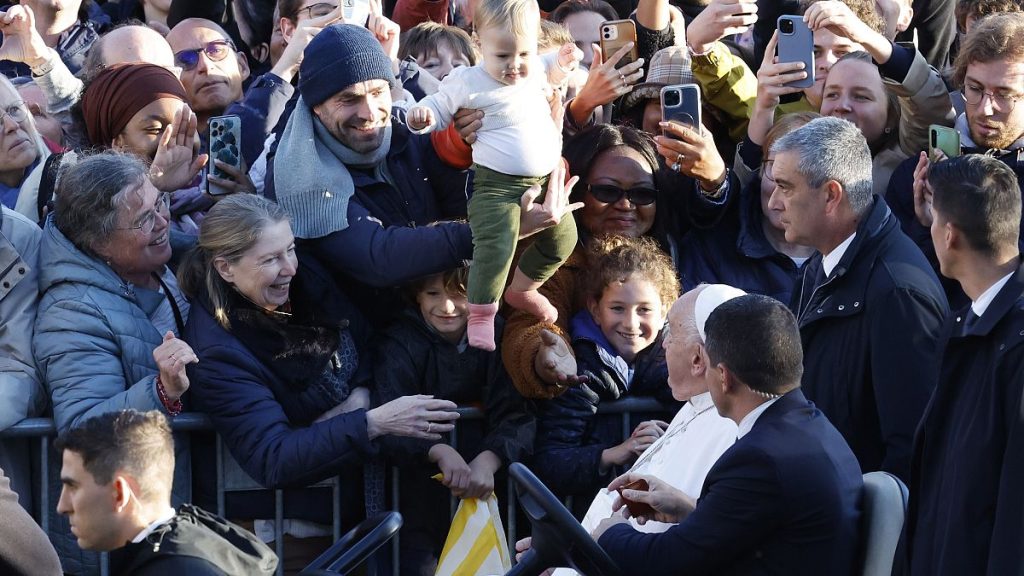During the Pope’s visit to the Catholic University in Leuven, Belgium, students questioned the lack of women in top positions in the Catholic Church and the disregard for their intellectual contributions. They outlined some of the most pressing issues of modern times, such as social inequality, social injustice, the climate crisis, and the role of women within the Church. Euronews’ correspondent Shona Murray reported live from the site, highlighting the criticism faced by the Pope during his visit due to covering up cases of clergy sex abuse and being behind the times in embracing women and the LGBTQ+ community. This criticism was evident as he met with abuse survivors in Belgium, expressing remorse, seeking forgiveness, and promising to prevent further abuses.
The abuse survivors shared their trauma, shame, and pain with Francis and demanded reparations from the Church. The Pope acknowledged the severity of the situation, expressing humility and vowing to do everything possible to ensure similar abuses never happen again. The institution’s moral authority has been weakened by the abuse scandals, and calls for reform were made by figures such as Luc Sels, the rector of Leuven Catholic University. He questioned whether the Church could be more inclusive by allowing women to hold prominent positions, embracing gender and diversity issues, and welcoming the LGBTQ+ community. This reflects a push for a more relevant and responsive Catholic Church by embracing the viewpoints of European social progressives and reform-minded leaders like Pope Francis.
The Pope’s visit to Belgium began with a welcome from King Philippe, who highlighted the abuse scandals and forced adoptions, urging the Church to work continuously to atone for its crimes and assist victims in healing. Prime Minister Alexander De Croo also called for transparency, recognition of misdeeds, and a focus on victim interests over the Church’s reputation. The abuse survivors applauded the honest remarks from both state and Church representatives, emphasizing the need for substantial financial settlements for victims. Some survivors mentioned that the current compensation provided by the Belgian Church was insufficient to cover the costs of therapy, calling for a comprehensive system of church reparations.
Revelations of Belgium’s abuse scandal have been ongoing for decades, with the most prominent case involving the resignation of Bishop Roger Vangheluwe after admitting to sexually abusing his nephew. Francis faced strong criticism for not defrocking Vangheluwe earlier, but he ultimately took action to remove a source of outrage among Belgians. The Pope assured that the Church was addressing the abuse problem by implementing prevention programs, listening to victims, and accompanying them in the healing process. He expressed shame for the scandal and committed to preventing future incidents, acknowledging that even one victim is enough reason for the Church to feel ashamed and ask for forgiveness.
The open dialogue between the Pope, abuse survivors, and Belgian leaders marked a significant shift from traditional diplomatic encounters, with a focus on transparency, accountability, and reparations. The victims’ demands for a universal system of church reparations were acknowledged by the Vatican, indicating a willingness to address the trauma and suffering endured by survivors. The Pope’s commitment to studying their requests and taking concrete steps to prevent further abuses reflects a proactive approach to healing past wounds and rebuilding the Church’s credibility. As the Church grapples with its legacy of abuse, these efforts towards reconciliation and justice are crucial in restoring faith and trust in the institution.













